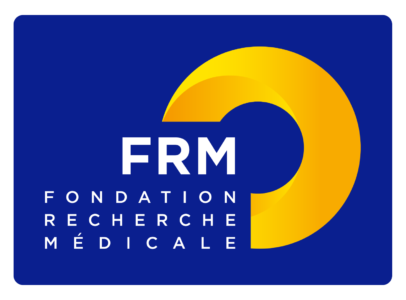Identify specific metabolic biomarkers for frailty
 We hypothesize that a specific signature of the metabolome represents a powerful biomarker of frailty and could provide information on the mechanisms leading to this syndrome and its associated consequences. Before and after a challenge of metabolism homeostasis- by physical exercise- metabolic profiles of frail, pre-frail and robust INSPIRE cohort volonteers will be measured from plasma by untargeted metabolomics, 1H nuclear magnetic resonance spectroscopy (1H NMR, MetaToul platform), which allows a global analysis of metabolite content (metabolic fingerprints). Robust statistical analyses will be used to characterize the impact of frailty on metabolic profiles and, more broadly, to identify metabolic biomarkers of frailty. These results will open the door, through multivariate strategies, to a possibly of monitoring the aging progression over time at very early stage.
We hypothesize that a specific signature of the metabolome represents a powerful biomarker of frailty and could provide information on the mechanisms leading to this syndrome and its associated consequences. Before and after a challenge of metabolism homeostasis- by physical exercise- metabolic profiles of frail, pre-frail and robust INSPIRE cohort volonteers will be measured from plasma by untargeted metabolomics, 1H nuclear magnetic resonance spectroscopy (1H NMR, MetaToul platform), which allows a global analysis of metabolite content (metabolic fingerprints). Robust statistical analyses will be used to characterize the impact of frailty on metabolic profiles and, more broadly, to identify metabolic biomarkers of frailty. These results will open the door, through multivariate strategies, to a possibly of monitoring the aging progression over time at very early stage.
Principal investigators of this study:
Pr Louis Casteilla – louis.casteilla@inserm.fr & Dr Isabelle Ader – isabelle.ader-perarnau@inserm.fr
Urinary peptidome signatures as non-invasive detection of frailty
 Capillary electrophoresis coupled to mass spectrometry (CE-MS) is routinely used to analyse the low molecular weight urinary proteome or “peptidome” (capacity of about 1000 samples/year). This unique high-throughput technology will be applied to identify non-invasive frailty (both early and full-blown frailty) signatures in urine using the INSPIRE cohort. This will allow to potentially propose, based on a simple urine sample, easy identification of full-blown frail subjects.
Capillary electrophoresis coupled to mass spectrometry (CE-MS) is routinely used to analyse the low molecular weight urinary proteome or “peptidome” (capacity of about 1000 samples/year). This unique high-throughput technology will be applied to identify non-invasive frailty (both early and full-blown frailty) signatures in urine using the INSPIRE cohort. This will allow to potentially propose, based on a simple urine sample, easy identification of full-blown frail subjects.
Principal investigator of this study: Joost-Peter Schanstra – joost-peter.schanstra@inserm.fr
Effects of metabolic dysfunction and chronic kidney disease on arterial endothelial cell morphology during aging
 Two major stress conditions with increasing prevalence (HFD-induced metabolic stress and toxic circulating factors such as uremic toxins) will be used as models of accelerated aging, to induce endothelial dysfunctions and pro-thrombotic phenotype. The impact will be investigated on macrovascular endothelium in terms of morphology and function.
Two major stress conditions with increasing prevalence (HFD-induced metabolic stress and toxic circulating factors such as uremic toxins) will be used as models of accelerated aging, to induce endothelial dysfunctions and pro-thrombotic phenotype. The impact will be investigated on macrovascular endothelium in terms of morphology and function.
Principal investigator of this study: Muriel Laffargue – muriel.laffargue@inserm.fr
Prevention of multi-organ premature aging through mitochondria-targeted strategies
I n this project, the prospective benefits of mitochondria-targeted nutritional strategies will be assessed to prevent multi-organ premature aging. Mitochondrial dysfunction is a key driver of cellular senescence and precipitates age related diseases. Mitochondria-targeted therapies could thus delay the onset and reduce the severity of age-related chronic diseases.
n this project, the prospective benefits of mitochondria-targeted nutritional strategies will be assessed to prevent multi-organ premature aging. Mitochondrial dysfunction is a key driver of cellular senescence and precipitates age related diseases. Mitochondria-targeted therapies could thus delay the onset and reduce the severity of age-related chronic diseases.
Principal investigators of this study:
Pr Angelo Parini – angelo.parini@inserm.fr & Jeanne Mialet-Perez – jeanne.perez@inserm.fr
MOVE ON
 In the context of the INSPIRE Program, this project is centered on the dysfunctions of the mitochondria and more precisely on the dysfunction of the mitochondrial respiratory chain and the subsequent abnormal ROS production, largely involved in aging processes. The operation of mitochondrial respiratory chain can be divided into two models, one for complex I and the other for complex III because these are the main production sites for ROS. With this model the new or modified metabolic pathways of neurons in response to physical stress will be analyzed.
In the context of the INSPIRE Program, this project is centered on the dysfunctions of the mitochondria and more precisely on the dysfunction of the mitochondrial respiratory chain and the subsequent abnormal ROS production, largely involved in aging processes. The operation of mitochondrial respiratory chain can be divided into two models, one for complex I and the other for complex III because these are the main production sites for ROS. With this model the new or modified metabolic pathways of neurons in response to physical stress will be analyzed.
Principal investigator of this study: Noélie Davezac – noelie.davezac@univ-tlse3.fr
Determine the changes in brain insulin signaling in aging
 The INS2BRAIN project investigates the role of brain insulin signaling on the regulation of memory and emotional processes. The main hypothesis is that a progressive alteration of hippocampal insulin signaling throughout life underlies senescent cells-induced cognitive deficits and psychological disorders, two behavioral markers of cognitive frailty and early ageing.
The INS2BRAIN project investigates the role of brain insulin signaling on the regulation of memory and emotional processes. The main hypothesis is that a progressive alteration of hippocampal insulin signaling throughout life underlies senescent cells-induced cognitive deficits and psychological disorders, two behavioral markers of cognitive frailty and early ageing.
Principal investigator of this study: Bruno Guiard – bruno.giuard@univ-tlse3.fr
Inspire SPHERES: role of the fat cell lipid droplet in aging-related cardiometabolic diseases
 Founded by an ERC Synergy program. The adipocyte lipid droplet (LD) is a unique organelle specialized in storing energy as triglycerides. Adipocyte hypertrophy due to an increase in LD size may, irrespective of body fat mass, cause a wide range of pathological conditions, notably cardiometabolic diseases. The mouse cohort of the Inspire program offers a unique opportunity to study the impact of aging, sex, physical exercise and diet-induced obesity on the relationship between adipocyte size and cardiometabolic parameters. Together with work in humans, the Inspire SPHERES joint program will link new knowledge on the formation and maintenance of large adipocyte LDs to the deleterious impact of adipocyte hypertrophy in the context of aging.
Founded by an ERC Synergy program. The adipocyte lipid droplet (LD) is a unique organelle specialized in storing energy as triglycerides. Adipocyte hypertrophy due to an increase in LD size may, irrespective of body fat mass, cause a wide range of pathological conditions, notably cardiometabolic diseases. The mouse cohort of the Inspire program offers a unique opportunity to study the impact of aging, sex, physical exercise and diet-induced obesity on the relationship between adipocyte size and cardiometabolic parameters. Together with work in humans, the Inspire SPHERES joint program will link new knowledge on the formation and maintenance of large adipocyte LDs to the deleterious impact of adipocyte hypertrophy in the context of aging.
Principal investigator of this study: Dominique Langin – dominique.langin@inserm.fr
MONA: metabolism, obesity, nutrition and age
 The consequences of weight loss interventions on metabolic adaptations in older obese individuals are very imperfectly described. Information is scant on the differential response to such interventions between younger and older obese adults. Among metabolic organs, adipose tissue and skeletal muscle are profoundly impacted by calorie restriction and physical exercise. In the MONA project, we investigated two groups of obese adult men, a younger obese adult group (30-40 year-old) and an older obese adult group (60-70 year-old). The two groups participated in an 8-week dietary intervention with moderate calorie restriction and, supervised physical training. Two day sessions of investigation performed before and the end of the program included measurements of body composition, energy expenditure, insulin sensitivity and, an extensive characterization of cardiovascular and metabolic parameters along with biopsies of adipose tissue and skeletal muscle to assess the molecular adaptations in these tissues.
The consequences of weight loss interventions on metabolic adaptations in older obese individuals are very imperfectly described. Information is scant on the differential response to such interventions between younger and older obese adults. Among metabolic organs, adipose tissue and skeletal muscle are profoundly impacted by calorie restriction and physical exercise. In the MONA project, we investigated two groups of obese adult men, a younger obese adult group (30-40 year-old) and an older obese adult group (60-70 year-old). The two groups participated in an 8-week dietary intervention with moderate calorie restriction and, supervised physical training. Two day sessions of investigation performed before and the end of the program included measurements of body composition, energy expenditure, insulin sensitivity and, an extensive characterization of cardiovascular and metabolic parameters along with biopsies of adipose tissue and skeletal muscle to assess the molecular adaptations in these tissues.
Principal investigator of this study: Dominique Langin – dominique.langin@inserm.fr
The Aging Metabolic Network project (AMN) : TBC



Principal investigators of this study:
Dr Cédric Dray – cedric.dray@inserm.fr & Pr Philippe VALET – philippe.valet@inserm.fr
Apeline: a key peptide in geroscience research? TBC



Principal investigator of this study:
Dr Cédric Dray – cedric.dray@inserm.fr





